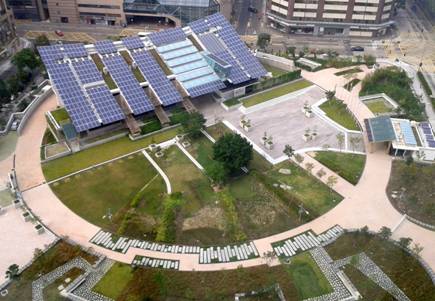|
|||
| Industry News | <Search <Archives <eBulletin Next> | ||
January 26, 2013 Zero carbon buildings: Contexts, challenges and strategies Climate change represents a very serious global risk. In response, there has been a worldwide transition towards a low carbon economy, amongst which the Chinese central government has set a target to reduce carbon intensity by 17% and energy intensity by 16% over the 2011-2015 period , and the Hong Kong SAR government has pledged to reduce Hong Kong's carbon intensity by 50-60% on the 2005 baseline by 2020. Buildings worldwide account for as much as 45% of energy consumption and carbon emissions, while in Hong Kong, a service-based economy with no energy-intensive industries, buildings consume 89% of electricity, accounting for 60% of greenhouse gas (GHG) emissions. With buildings being identified with the most opportunities for reducing GHG emissions, the zero carbon building (ZCB) approach has been adopted in many countries/regions as an important government climate change strategy. Examples include the UK government's targets to achieve 'zero carbon' for new homes from 2016 and for non-domestic new buildings from 2019; the Energy Performance in Buildings Directive (EPBD) forecast for all new buildings in Europe to be 'nearly zero-energy' by 2020; and US government's goals of net zero energy for all new commercial buildings by 2030. In Hong Kong, the Construction Industry Council (CIC) has constructed the first ZCB in Hong Kong in 2012, as a signature project to showcase state-of-the-art green design and technologies to the construction industry and raise community awareness of sustainable living. However, although ZCB has emerged as an innovative model of sustainable development in the built environment, its take-up faces significant challenges. For full story <Click here>
About the author |
|
Copyright © Building.hk All rights reserved.
|



